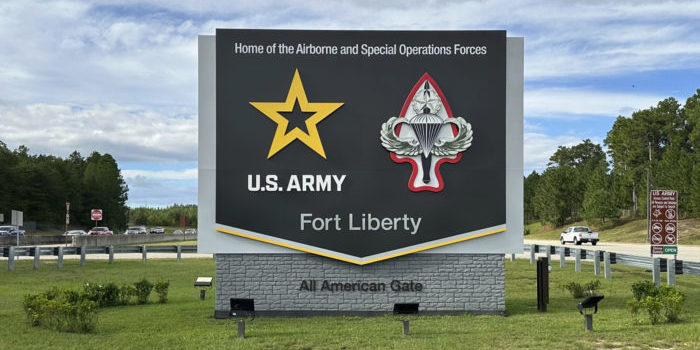(José Niño, Headline USA) When a former DEA task force officer became a drug trafficker and partnered with U.S. special operators, they built an underworld pipeline from Mexican cartels to America’s most elite military base, according to a bombshell new book.
Fort Bragg, long celebrated as the nerve center of U.S. Special Operations, now stands at the center of a deepening scandal uncovered by investigative journalist Seth Harp in his upcoming book “The Fort Bragg Cartel.”
An expert of Harp’s book, which hits the shelves Aug. 12, was recently published by Rolling Stone. It says that in December 2020, Master Sergeant William “Billy” Lavigne II and Chief Warrant Officer Timothy Dumas Sr., both connected to elite Army units, were found dead in a remote training area. Their bodies had been riddled with bullets in what appeared to be a professional assassination operation.
Mexico is not the only country where the military and police are the real power behind the illegal drug trade. This exclusive excerpt from my book for @RollingStone shows how cops and soldiers ran the whole cocaine trade in the Carolinas – until they started killing each other pic.twitter.com/ZFNgpWCY3A
— Seth Harp (@sethharpesq) July 28, 2025
While the Department of Justice indicted Kenneth Maurice Quick Jr. in 2023 for the killings, he pleaded not guilty. The more chilling details suggest the murders were just one chapter in a much larger criminal conspiracy involving drugs, weapons, and betrayal at the highest levels.
At the center of the story is Freddie Wayne Huff II, a disgraced former state trooper who subsequently became cartel operative. Huff claims he was suspected of the killings by his own underworld contacts. After being fired in 2014 over what he describes as retribution for issuing a DUI citation to a politically connected executive, Huff said he “lost everything” and vowed to flip the playbook of law enforcement against itself. “I told myself,” he recalled, “I was going to use every f***ing thing I had known, learned, and taught against them.”
Huff went on to work with Los Zetas, one of Mexico’s most violent cartels, whose early leaders trained at Fort Bragg in the 1990s. He became their main East Coast distributor, moving up to 100 kilos of cocaine weekly through North Carolina. His cover was an appliance export business. His protection came from ex-military and law enforcement personnel.
However, his secret weapon was an alliance with Special Forces insiders.
According to Huff, Dumas introduced him to a clandestine ring of Fort Bragg soldiers “that policed themselves” and dealt drugs in and around the base. “Tim told me about basically a gang,” Huff said, “a drug-trafficking organization within the military.” These men were not street-level dealers but “guys that are trained killers, that have already killed people” and who “would resort to anything, including murder.”
Dumas played a key role in a weapons theft scheme inside Fort Bragg, where he falsified military logs to smuggle grenades and automatic weapons into the black market.
The conspiracy lurched in an even darker direction with the possible existence of a blackmail document Dumas gave Huff for safekeeping. The letter allegedly named soldiers trafficking Afghan opiates into the United States, using military channels.
Huff said he read the file: “It was seriously incriminating shit.” The inmates were allegedly smuggling heroin extracted from Afghanistan — the world’s leading producer of opium since 2001 — and selling it to American troops and civilians alike.
The network, as described, wasn’t simply criminal. It was militarized and disciplined, a “little cartel” made up of disgruntled elite soldiers and lawmen. “They were former law enforcement, former military,” said Randall Galyon, the federal prosecutor leading Huff’s case. “Mr. Huff knew that they provided a set of skills that would be useful to him.”
José Niño is the deputy editor of Headline USA. Follow him at x.com/JoseAlNino

